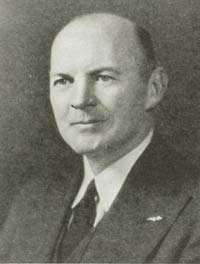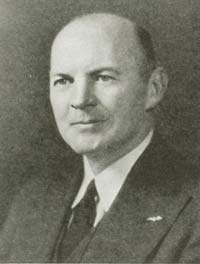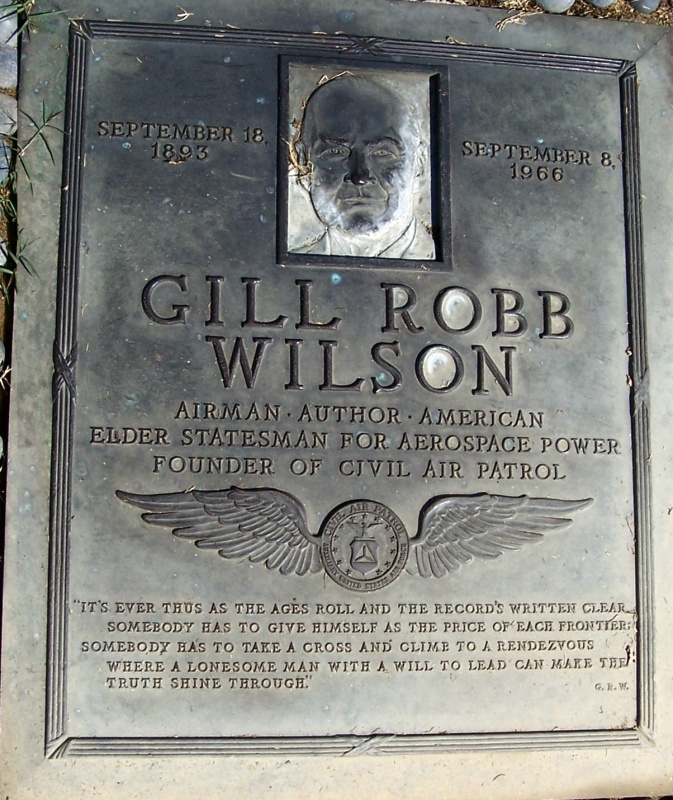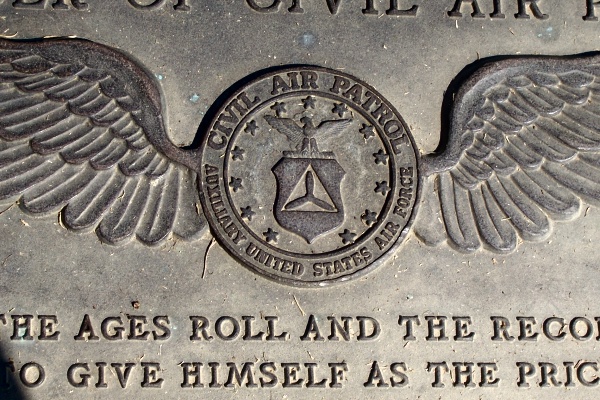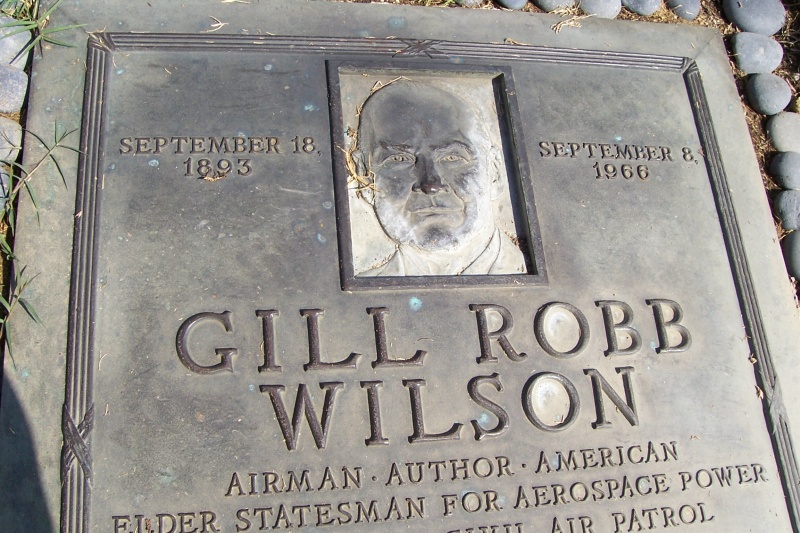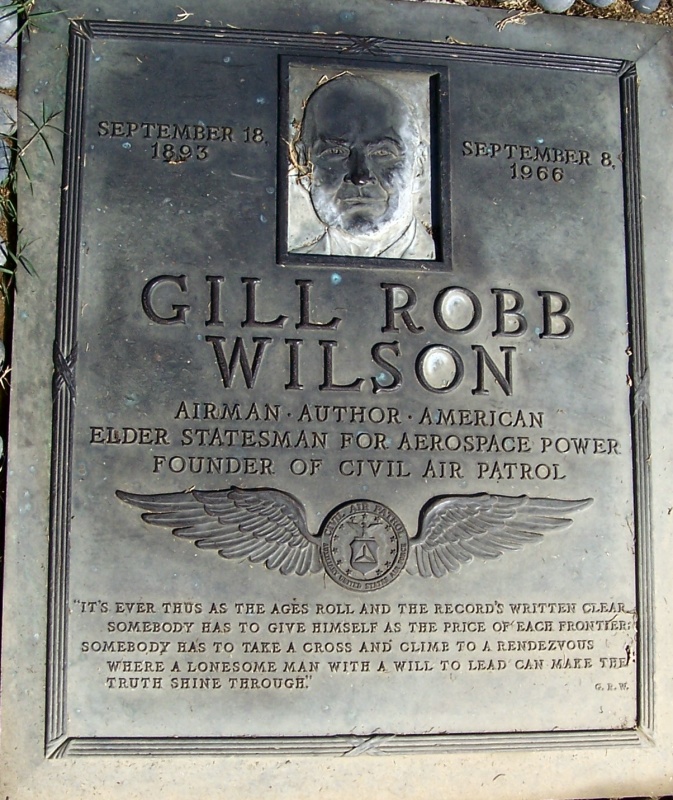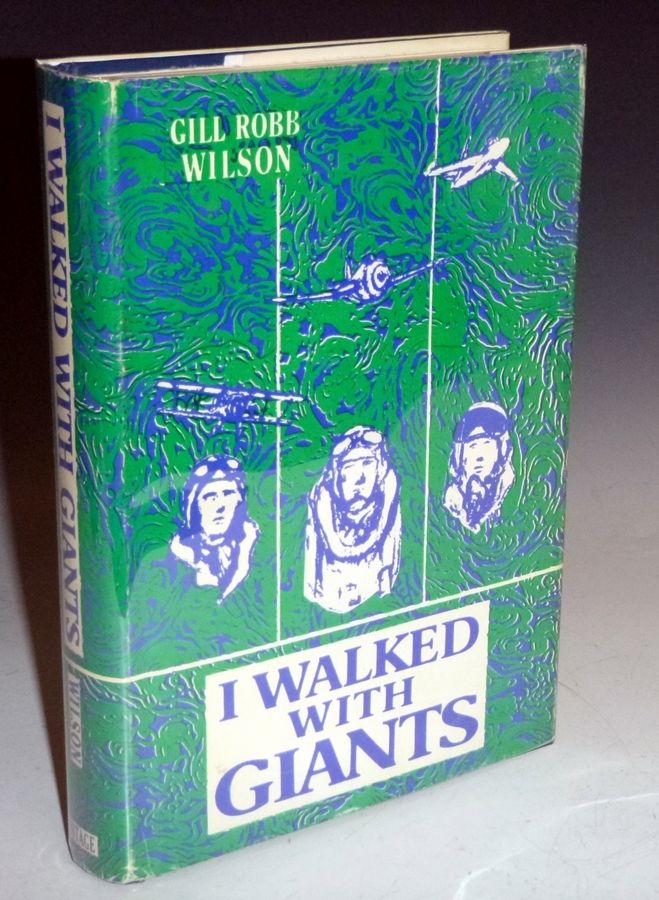Born in a small rural town of Pine, Allegheny County, PA, he was the oldest son of a clergyman, Gill Irvin Wilson and Amanda R. Wilson. During World War I, he served as a First Lieutenant in the US Army Air Service, as a pilot in France, and earned the French Croix de Guerre. During the 1920s, he was an ordained minister, following in the footsteps of his father. After the war, he turned to writing for a living, working for the New York Herald Tribune. In 1938, Wilson toured Germany, and came away with the feeling that Adolph Hitler was preparing for war, and that "while the democratic nations might have greater resources than Germany, they might lack the time to tap them quickly enough." Wilson felt convinced that America's civilian aviation pilots would embrace the concept of using their skills as "shock troops" to gain time should the United States coast be attacked. In 1938, Wilson was the aviation editor of the New York "Herald Tribune" as well as the Aeronautics Commissioner for the state of New Jersey. A founding member of the Aircraft Owners and Pilot Association (AOPA), he convinced the New Jersey governor to create a statewide organization, the AOPA Air Guard, a composite of private aviation buffs and flyers into a loose knit group to help patrol the growing skies of the United States and to be of service to the country should war break out. Wilson then took his idea to New York City mayor Fiorella La Guardia, who was also serving as the nation's Director of Civil Defense, and convinced him to expand the idea across the nation. On December 1, 1941, Fiorella La Guardia signed authorization for the establishment of the Civil Air Patrol (CAP), and with this, the AOPA Air Guard was formally incorporated into the new CAP. Wilson became the CAP's first Executive Officer, with US Army Air Force Major General John F. Curry as the Commander. With the declaration of war just six days later, Wilson envisioned a corps of "Flying Minute Men" patrolling the coast for enemy submarines, thus, making the sea lanes safer for cargo ships. During the war, the CAP patrolled the coast, ran air courier services and performed aerial search and rescue missions, freeing up military aircraft and crews to fight the war. CAP aircrews spotted 173 U-Boats, and dropped 83 bombs on 57 submarines, sinking two of them. In addition, CAP crews summoned help for 91 ships in distress and for 363 survivors of submarine attacks, while losing 26 CAP members and 90 aircraft to bad weather, accidents and enemy action. But the end result was that in mid 1944, the Germans pulled their U-Boats away from American shores, due to the ever-present yellow CAP planes. After the war, Wilson returned to writing, and from 1952 until his retirement in 1962, served as editor and publisher of "Flying" magazine. He was also the President of the Air Force Association in 1956 and Chairman of the Board of the AFA in 1957. In 1965, he was presented the National Aeronautic Association's Frank G. Brewer Trophy for his efforts at promoting American aviation. Civil Air Patrol's highest award is named for him. He died in California in 1966. (Bio by Kit and Morgan Benson)
Born in a small rural town of Pine, Allegheny County, PA, he was the oldest son of a clergyman, Gill Irvin Wilson and Amanda R. Wilson. During World War I, he served as a First Lieutenant in the US Army Air Service, as a pilot in France, and earned the French Croix de Guerre. During the 1920s, he was an ordained minister, following in the footsteps of his father. After the war, he turned to writing for a living, working for the New York Herald Tribune. In 1938, Wilson toured Germany, and came away with the feeling that Adolph Hitler was preparing for war, and that "while the democratic nations might have greater resources than Germany, they might lack the time to tap them quickly enough." Wilson felt convinced that America's civilian aviation pilots would embrace the concept of using their skills as "shock troops" to gain time should the United States coast be attacked. In 1938, Wilson was the aviation editor of the New York "Herald Tribune" as well as the Aeronautics Commissioner for the state of New Jersey. A founding member of the Aircraft Owners and Pilot Association (AOPA), he convinced the New Jersey governor to create a statewide organization, the AOPA Air Guard, a composite of private aviation buffs and flyers into a loose knit group to help patrol the growing skies of the United States and to be of service to the country should war break out. Wilson then took his idea to New York City mayor Fiorella La Guardia, who was also serving as the nation's Director of Civil Defense, and convinced him to expand the idea across the nation. On December 1, 1941, Fiorella La Guardia signed authorization for the establishment of the Civil Air Patrol (CAP), and with this, the AOPA Air Guard was formally incorporated into the new CAP. Wilson became the CAP's first Executive Officer, with US Army Air Force Major General John F. Curry as the Commander. With the declaration of war just six days later, Wilson envisioned a corps of "Flying Minute Men" patrolling the coast for enemy submarines, thus, making the sea lanes safer for cargo ships. During the war, the CAP patrolled the coast, ran air courier services and performed aerial search and rescue missions, freeing up military aircraft and crews to fight the war. CAP aircrews spotted 173 U-Boats, and dropped 83 bombs on 57 submarines, sinking two of them. In addition, CAP crews summoned help for 91 ships in distress and for 363 survivors of submarine attacks, while losing 26 CAP members and 90 aircraft to bad weather, accidents and enemy action. But the end result was that in mid 1944, the Germans pulled their U-Boats away from American shores, due to the ever-present yellow CAP planes. After the war, Wilson returned to writing, and from 1952 until his retirement in 1962, served as editor and publisher of "Flying" magazine. He was also the President of the Air Force Association in 1956 and Chairman of the Board of the AFA in 1957. In 1965, he was presented the National Aeronautic Association's Frank G. Brewer Trophy for his efforts at promoting American aviation. Civil Air Patrol's highest award is named for him. He died in California in 1966. (Bio by Kit and Morgan Benson)
